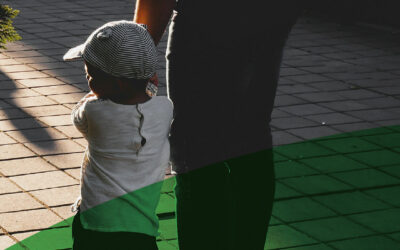Across the world, millions of children are unnecessarily separated from their families. Many who support orphanages or residential care centers often believe they are providing for children who have no parents or family, however research indicates that this separation is actually driven by poverty . As we have been privileged to work with amazing partners throughout many nations, we are seeing family reintegration and family strengthening every day to the benefit of many children, families and communities.
But what does this have to do with the World Day Against Trafficking?
This year’s theme is “Reach every victim of trafficking, leave no one behind.” In the spirit of that theme, we’d like to draw your attention to some victims of trafficking that may be hiding in plain sight: children currently living in orphanages or residential care centers throughout the world.
While many orphanages or children’s homes operate in good faith, the existence of the orphanage system has allowed a new form of trafficking to emerge. According to our colleagues at Better Care Network, Orphanage Trafficking is defined as “the recruitment and/or transfer of children to residential childcare facilities for a purpose of exploitation and profit1.”
This kind of trafficking can be challenging to identify. As with many forms of trafficking, a corrupt goal is often hidden behind a seemingly sincere offer of help. Vulnerable families can often be led to believe they are sending their child to an orphanage to receive a superior education or access to a brighter future with better prospects. Where orphanages are actively recruiting children out of families using deception and even coercion, orphanage trafficking is likely present.
Here are some fast facts on Orphanage Trafficking:
Orphanage Trafficking occurs more often in unregistered children’s homes or residential care centers2. This happens when individuals or organisations have opened a home but have not gone through proper licensing procedures with their local and national government. This presents an enormous risk to children as there is likely far less visibility on the care provided to children in an unregistered home. New research on orphanage trafficking quotes a social worker in Cambodia on their observations of children in unregistered homes:
“In unregistered orphanages, children are more likely to have been exploited or threatened and are unwilling to talk out of fear. We can see it via the staff’s actions and the children’s reactions. The way the staff speak to the children indicates threats and use of power to make the children afraid. When this is happening, it’s not possible to reintegrate children. It’s important to distinguish when these risks exist. There was one case where the staff were physically abusing the children3.”
Orphanage Trafficking preys upon vulnerable families. Where poverty, conflict, famine, displacement, or unrest occurs, families are more likely to be susceptible to offers of help that may harm their children in the end.
Orphanage Trafficking has exploitation or financial gain as its intention. Trafficking Survivor Leader Barma Budha Magar, from Nepal, was placed into an orphanage with her sisters when she was five years old4. Her mother had placed her children into the home on the promise of them receiving food, housing, and education that seemed superior to what she could provide them on her own. She and her sisters were then sent to another orphanage that seemed better initially. At this new orphanage, they were not permitted to speak about their biological family and endured repeated physical and mental abuse. Barma remembers one day that she knew her mother and brother had come to visit her and her sisters, but the staff did not permit them to come inside. After this, Barma and her sisters were reunified with her mother and brother, and she had a chance to ask her mother what had happened. It was then she learned her mother had paid the owner of the orphanage 30,000 rupees to admit she and her sisters into the first orphanage, and another 45,000 rupees to send her brother to a children’s home for better education. Additionally, when Barma and her sisters were sent to the second orphanage, she later learned that the second orphanage had paid for the sisters to come to their home. She realised she had been trafficked without even knowing it.
Orphanage Trafficking hides behind the facade of the idea of “good” orphanages. Another Trafficking Survivor Leader, Sinet Chan has shared her story of being trafficked in Cambodia5. Her family was living in significant poverty when her parents both died from HIV/AIDS. After this, she and her siblings were sent to an unregistered orphanage funded by foreign donations. Initially, Sinet wondered if this orphanage might present her with a brighter future, but she quickly felt unsafe. She remembers that she and the other children rarely had enough to eat, despite frequent visits from foreigners who often left large donations behind. The children were forced to do hard manual labor every day in the fields owned by the orphanage director, who also repeatedly physically abused and raped Sinet and other children, even threatening to kill her if she ever spoke of her treatment there. Shockingly, even after Sinet reported this abuse to local authorities, nothing was done. The director continued to run this orphanage and was not charged with any of his many crimes. A full 12 years would pass before this orphanage was shut down, meaning hundreds of additional children were exposed to this man’s abusive behavior. Sinet eventually made a formal charge against her perpetrator, but the officials were unwilling to consider her case as trafficking. She sadly remembers, “they sided with the offender, even though it was their job to protect me.” Her case reveals an enormous misconception that allows this trafficking and abuse to hide in plain sight6. Officials can often assume that those who run orphanages are good people and are slow to believe they are exploiting children.
Orphanage Trafficking can be fueled by the promise of support from foreign visitors and donors. The establishment of orphanages that are primarily funded from Global North donor nations has created a system that incentivises higher numbers in children’s homes. Lumos notes that in Uganda,
“The country saw an increase in the number of children institutions from just over 1,000 in the late 90s to approximately 55,000 now – despite a reduction in numbers of orphans. These orphanages are often built in the tourist ‘hotspots’, driven by international donations and volunteers from countries such as the UK7.”
While this paints a dark picture, there is good work being done around the world to combat the underlying conditions that perpetuate this abuse and support those who have survived Orphanage Trafficking. You can be part of ending Orphanage Trafficking in several ways:
- Don’t visit orphanages on your next mission trip or overseas adventure. While this may seem like a great way to “give back” to countries you visit, research tells us that this practice harms children in several ways. Children separated from their families have already endured a significant disruption in their primary attachment. This is further exacerbated by frequent visitors. While you’ve likely seen pictures of cute, smiling children at orphanages or heard the stories of how much they loved having visitors, there is often pain beneath those selfies and stories.
- If you currently support an orphanage or children’s home, we’d encourage you ask their leaders some questions. Are you confident they are registered with their local and national authorities? Do they have reporting mechanisms in place to ensure children are truly protected? Could you potentially help them consider transitioning their model to support children in families instead?
- Sign and share this petition from our colleagues at Hopeland to help with legislative efforts to formalize the prosecution of these crimes.
- Commit to learning more about Orphanage Trafficking and the efforts being made to stop this crime. This brief from our colleagues at Better Care Network is a great place to start. Or you can listen to this recent webinar to hear more from brilliant leaders on this topic.
We join all those honouring today as the World Day Against Trafficking. We share their hope to reach every victim of trafficking and leave no one behind.
As a note, Martin James Foundation specifically requested permission from both Barma and Sinet to share their name and story here.
1 See more here: https://bettercarenetwork.org/about-bcn/what-we-do/key-initiatives/global-collaborative-platform/thematic-brief-volunteering-voluntourism-tourism-and-trafficking-in-orphanages
2 Nhep R, Deck S, van Doore K, Powell M. Detecting orphanage trafficking and exploitation. Child Abuse Negl. 2024 Jun;152:106813. doi: 10.1016/j.chiabu.2024.106813. Epub 2024 Apr 23. PMID: 38657489.
3 Nhep R, Deck S, van Doore K, Powell M. Detecting orphanage trafficking and exploitation. Child Abuse Negl. 2024 Jun;152:106813. doi: 10.1016/j.chiabu.2024.106813. Epub 2024 Apr 23. PMID: 38657489.
4 Hear more of Barma’s story here: https://bettercarenetwork.org/orphanagetrafficking_webinar
5 More of Sinet’s story here: https://bettercarenetwork.org/orphanagetrafficking_webinar
6 Read more here: https://www.taipeitimes.com/News/editorials/archives/2017/08/23/2003677003
7 https://www.wearelumos.org/news-and-media/2019/01/15/ugandan-orphanage-business/#:~:text=The%20country%20saw%20an%20increase,countries%20such%20as%20the%20UK.



